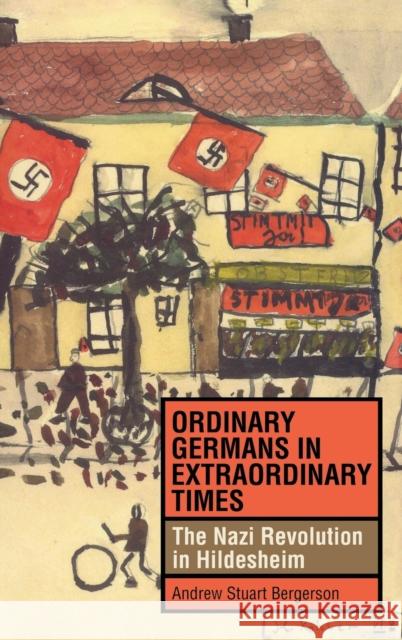Ordinary Germans in Extraordinary Times: The Nazi Revolution in Hildesheim » książka
Ordinary Germans in Extraordinary Times: The Nazi Revolution in Hildesheim
ISBN-13: 9780253344656 / Angielski / Twarda / 2004 / 336 str.
Hildesheim is a mid-sized provincial town in northwest Germany. Ordinary Germans in Extraordinary Times is a carefully drawn account of how townspeople went about their lives and reacted to events during the Nazi era. Andrew Stuart Bergerson argues that ordinary Germans did in fact make Germany and Europe more fascist, more racist, and more modern during the 1930s, but they disguised their involvement behind a pre-existing veil of normalcy. Bergerson details a way of being, believing, and behaving by which "ordinary Germans" imagined their powerlessness and absence of responsibility even as they collaborated in the Nazi revolution. He builds his story on research that includes anecdotes of everyday life collected systematically from newspapers, literature, photography, personal documents, public records, and especially extensive interviews with a representative sample of residents born between 1900 and 1930. The book considers the actual customs and experiences of friendship and neighborliness in a German town before, during, and after the Third Reich. By analyzing the customs of conviviality in interwar Hildesheim, and the culture of normalcy these customs invoked, Bergerson aims to help us better understand how ordinary Germans transformed "neighbors" into "Jews" or "Aryans."
Hildesheim is a mid-sized provincial town in northwest Germany. Ordinary Germans in Extraordinary Times is a carefully drawn account of how townspeople went about their lives and reacted to events during the Nazi era. Andrew Stuart Bergerson argues that ordinary Germans did in fact make Germany and Europe more fascist, more racist, and more modern during the 1930s, but they disguised their involvement behind a pre-existing veil of normalcy.
Bergerson details a way of being, believing, and behaving by which "ordinary Germans" imagined their powerlessness and absence of responsibility even as they collaborated in the Nazi revolution. He builds his story on research that includes anecdotes of everyday life collected systematically from newspapers, literature, photography, personal documents, public records, and especially extensive interviews with a representative sample of residents born between 1900 and 1930.
The book considers the actual customs and experiences of friendship and neighborliness in a German town before, during, and after the Third Reich. By analyzing the customs of conviviality in interwar Hildesheim, and the culture of normalcy these customs invoked, Bergerson aims to help us better understand how ordinary Germans transformed "neighbors" into "Jews" or "Aryans."











